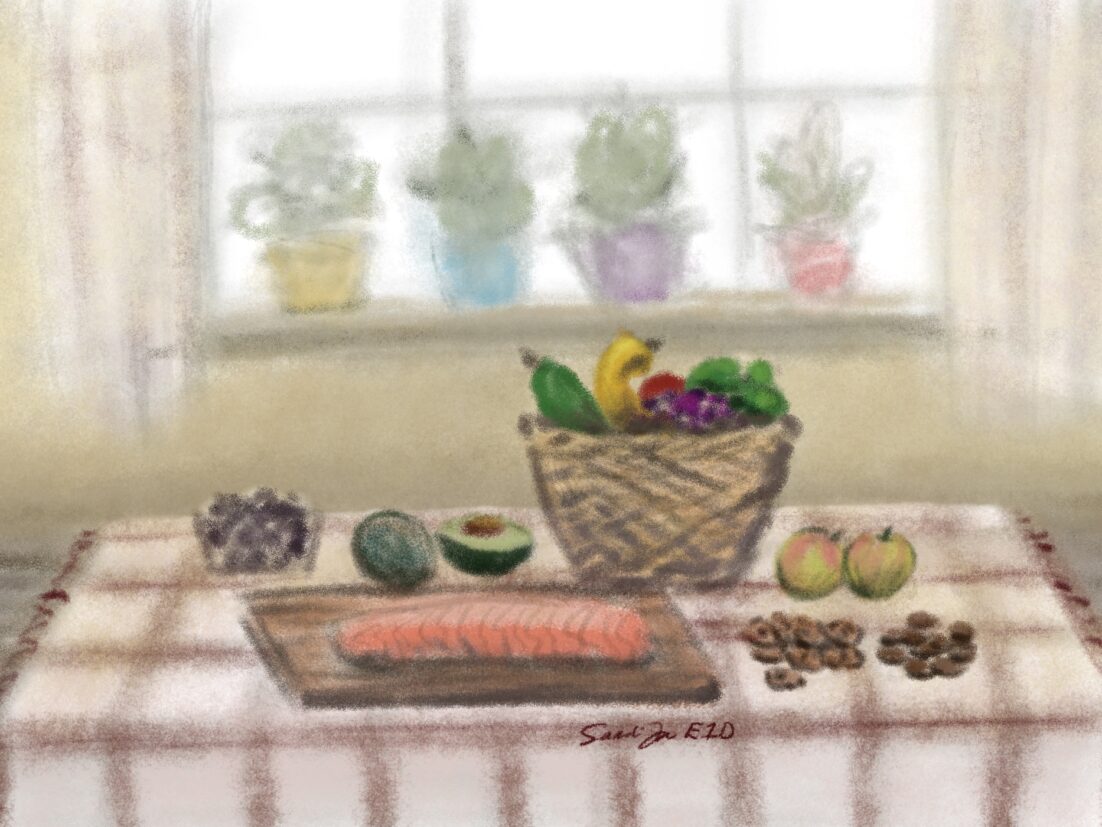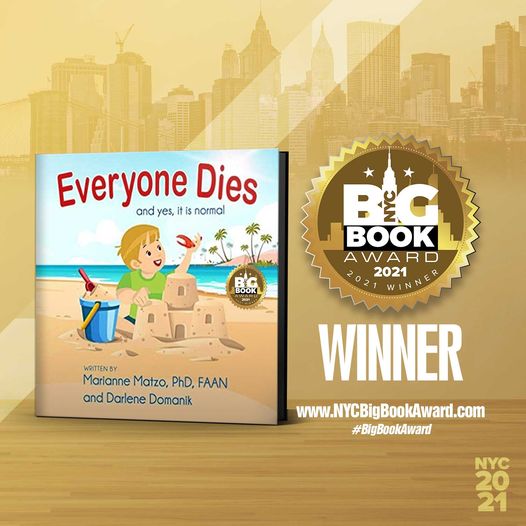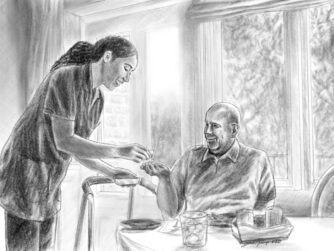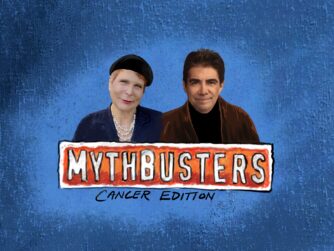What does research have to say about processed vs whole foods, and how do you make the best choices?
Diet may be destiny when it comes to our health. If we switch from eating the Standard American Diet to one that is higher in whole plant foods, such as fruits and vegetables, we may lower our risk of developing certain diseases.
In this Episode:
- 04:06 – Celebrating a Supercentarian and the Research to Learn from their Lifestyles
- 07:48 – Recipe of the Week: Copycat Samoa Girl Scout Cookies
- 09:38 – Improving Our Chances of Long Life by Choosing the Right Foods
- 35:11 – Will Our Planet Someday be Engulfed by the Sun?
- 39:38 – Outro
How Can the Right Foods Affect Health?
Realistic changes of diet and lifestyle may prevent most heart disease, stroke, diabetes, colon cancer, and smoking-related cancers. Food may not exactly be medicine, but eating the right food is one of the best ways to prevent disease or slow down the effects of a disease we already have.
What we do know is whole foods – especially those found in the Mediterranean Diet – are best. Superfoods to include weekly are salmon, lentils, spinach and other leafy greens, black or green tea, oats, blueberries, pumpkin seeds, eggs, and winter squash.
On the flip side, ultra-processed foods have been linked to disease. We talk about the 5:1 rule in carbohydrate to fiber as a good rule of thumb in evaluating packaged foods; see the video below for what that means.
I Want to Change My Food Choices, but It’s So Hard to Fit Into My Lifestyle!
We get it! Everyone is busy these days, or if you have chronic disease, grabbing a bag of munchies can be so much more comforting than a stick of celery. But we discuss some easy ways to make better choices. We also have some great tips for your next shopping trip to avoid the ultra-processed foods.
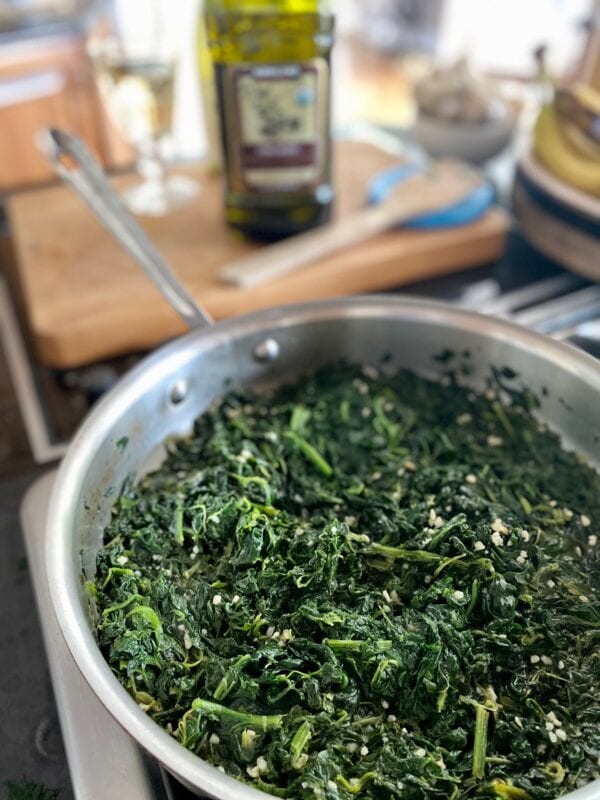
Can processed Foods be Addictive?
There is clearly something about ultra-processed foods that makes people eat more of them without necessarily wanting to or realizing. Until we find out why these foods are so addictive, it’s best to eat ultra-processed foods in as small amounts as possible.
What is Mindful Eating?
Mindfulness is a mental state achieved by focusing one’s awareness on the present moment. When we extend this to eating, it can help provide a behavior change to appreciate our food more fully and recognize fullness, crucial to any weight loss or dietary plan. A side benefit of a thoughtful awareness of our food, is we tend to make better choices about where it came from.
In the Diabetes Spectrum article, “Mindful Eating: The Art of Presence While You Eat”, the author gives the following tips:
Eating mindfully is about bringing full awareness to each plate or bite of food. It begins with the first thought about food and lasts until the final bite is swallowed and the consequence of the episode is experienced. Some of the following suggestions will be useful in teaching methods to eat mindfully:
- Before reaching for something automatically, stop and take a moment to notice what you are feeling and what you might want to fill you up. Are you stressed, bored, angry, or sad? Are you lonely? Or, are you actually physically hungry? Be mindful of your reactivity and make a choice instead.
- If your desire is not about hunger, do something else more appropriate for the desire.
- Eat intentionally and only eat. Put away other distractions and pay attention to your food.
- In addition to how you experience a food, consider what it took to bring this food to you. Who was involved in the growing process and production? Consider the sun and soil it took to grow the ingredients and ask yourself where in the world it came from. Appreciate all of what it took to bring it to your plate.
- Savor each bite the way you did the raisin in the earlier exercise.
- After each bite, check in with your body to see how you are feeling. Have you had enough? Do you need more? Is it time to stop? Then move on to whatever you have chosen.
See the video below for a great explanation of mindful eating.
Related Podcasts:
- S4E36-Are You Aging Well? Learn How to Make the Best of Your Golden Years
- S3E37: What Can a Mindfulness Practice Offer You?
- S4E46: What You Need to Know about Stomach Cancer – Part 1
- S5E4: Inflammation: What it is, How It Causes Disease, and How You Can Decrease It
- S5E16: Colorectal Cancer is Increasing in the Young: What You Need to Know
- S5E24: What is the Gut Microbiome, and Why Is it Important?
- S5E25: The Important Role of the Microbiome to Your Health and Immune Function
References:
- Our Favorite Nutrition Takeaways From 2024, So Far – New York Times
- Obesity Rate by State 2024: https://worldpopulationreview.com/state-rankings/obesity-rate-by-state
- Determinants of Health, Risk Factors, and Prevention LibreTexts Medicine
- DEATHS BY DEMOGRAPHICS: https://injuryfacts.nsc.org/all-injuries/deaths-by-demographics/top-10-preventable-injuries/data-details/
- Nelson JB. Mindful Eating: The Art of Presence While You Eat. Diabetes Spectr. 2017 Aug;30(3):171-174. doi: 10.2337/ds17-0015. PMID: 28848310; PMCID: PMC5556586.
- Hard Work and Fizzy Drinks: What It Takes to Live Past 110: https://www.nytimes.com/2024/08/21/arts/oldest-people-advice-long-life-supercentenarians.html?login=email&auth=login-email
- Louise Levy, Who Was Studied for Her Very Long Life, Is Dead at 112: https://www.nytimes.com/2023/07/27/health/louise-levy-dead.html
- For the first time, astrophysicists have caught a star eating a planet: https://www.sciencenews.org/article/first-time-astrophysicists-star-eating-planet
- Astronomers catch a preview of the Sun’s grisly demise: https://www.inverse.com/science/far-future-of-the-solar-system
- Why the Largest-Ever Catalog of Supernovae Could Change How We Study Them: https://www.inverse.com/science/astronomers-finally-have-a-way-to-track-supernovae
Resources:
- Mindful Eating – Harvard School of Public Health
- Follow the 5-to-1 Rule for Packaged Foods – Nutrition facts.org
- NON-MODIFIABLE RISK FACTORS: https://pwc.ottawaheart.ca/awareness/heart-health-portal/risk-factors/non-modifiable-risk-factors
- Find Out about Your Own Health Risks: http://www.keepmewell.org/cgi-bin/q
- My Family Health Portrait: https://cbiit.github.io/FHH/html/index.html
- Families Sharing Health Assessment and Risk Evaluation (SHARE) helps families learn how their family health history affects their risk for diseases. It is funded by the National Human Genome Research Institute. Your family health history plays a part in your risk and your family members’ risk for many different diseases
- Family Health History – CDC
- Is Geography Destiny? How Environments Shape Our Lives
- Half of US Cancer Deaths Avoidable, ‘Alarming’ Study Says – Newsweek
Recipe of the Week: No-Bake Copycat Samoa Girl Scout Cookies
It might be a long wait for the next Girl Scout season after you’ve finished that box of your favorite Samoa’s, but here’s a recipe that might just hold you over, sure to be a winning feature of a get-together. Head to 12 Tomatoes for the full recipe!


https://blog.feedspot.com/palliative_care_podcasts/
Everyone Dies: and yes, it is normal!
Everyone Dies (and yes, it is normal) is a story about a young boy named Jax who finds something special on the beach where he and his grandpa Pops are enjoying a wonderful day. Pops helps Jax understand that death is a normal part of life. This book provides an age appropriate, non-scary, comfortable way to introduce the important topic of mortality to a preschool child. Its simple explanation will last a lifetime. Autographed copies for sale at: www.everyonediesthebook.com. Also available at Amazon
Mourning Jewelry

We offer a way to memorialize your loved one or treasured pet with a piece of handmade jewelry. When people comment on it and the wearer can say for example “I received this when my mother died” which opens the conversation about this loss. All our jewelry is made with semi-precious stones and beads, vintage beads, and pearls. You can choose between earrings or bracelets and the color family. Learn More


